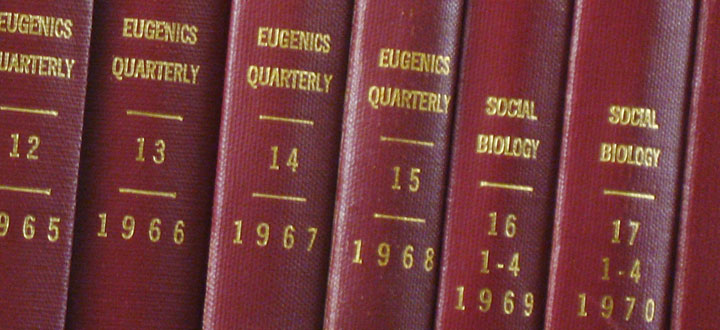Biology, social science and history
-
Research
- Health and Wellbeing
Posted on 8 September 2015
Dr Chris Renwick is a senior lecturer in Modern History at the University of York. He has a growing international reputation as an expert on the history of the relationship between biological and social thought.

Dr Renwick argues that the relationship between biology and society has endured a difficult past, a controversial present, and an uncertain future. Since the widespread acceptance of evolutionary theories in the mid-nineteenth century the idea that nature, rather than nurture, dominates human identity has been investigated frequently. However, after the horrendous results of state- sanctioned eugenic programmes during the 1930s and 40s, bio-social science was treated with a great deal of scepticism; in particular by historians and social scientists, who rejected what they saw as biological reductionism in favour of ideas about the social and cultural construction of human identity.
His research project explores some of those themes and is entitled: "Biology, social science, and history: past, present, and future interactions".
It concentrates on the period from 1910, when eugenics was entering a two-decade height of popularity, to the late 1960s, when the agendas, aims, and practices we identify with modern social research were stabilised. Dr Renwick explores a set of debates about the nature of society and social structure that created and shaped key concepts, including "social mobility", which are central to contemporary politics and social policy.
He analyses the underappreciated intellectual exchanges in those debates between biologists and social investigators, in particular demographers, economists, and sociologists. They were brought together not only by shared interests in topics such as intelligence, fertility, nutrition, and poverty but also funding bodies such as the Rockefeller Foundation.
His research will culminate in a book examining the intersection of biology, politics, and social investigation in 20th-century Britain.
He will also bring together scholars from the natural sciences, social sciences, and history for a major international conference. The aim of that conference will be to discuss not only the serious issues that biological and neuro-science currently raise for scholars in history and the social sciences, but also the potential for historians and social scientists to shape agendas in the other direction.
The text of this article is licensed under a Creative Commons Licence. You're free to republish it, as long as you link back to this page and credit us.

Dr Chris Renwick
Research interests include the history of the biological and social sciences since the mid-nineteenth century.
Visit the department
Explore more research

A research project needed to spot trees on historic ordnance survey maps, so colleagues in computer science found a solution.

We’re using gaming technology to ensure prospective teachers are fully prepared for their careers.

A low cost, high-accuracy device, could play a large part in the NHS's 'virtual wards'.
